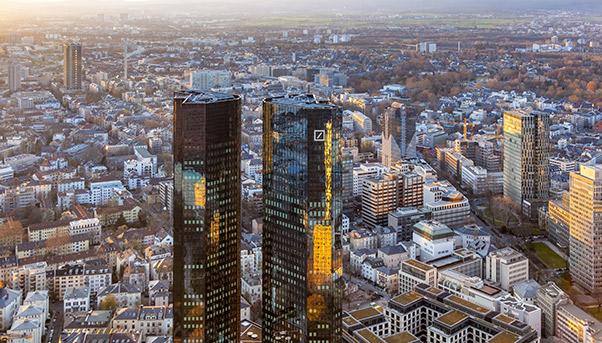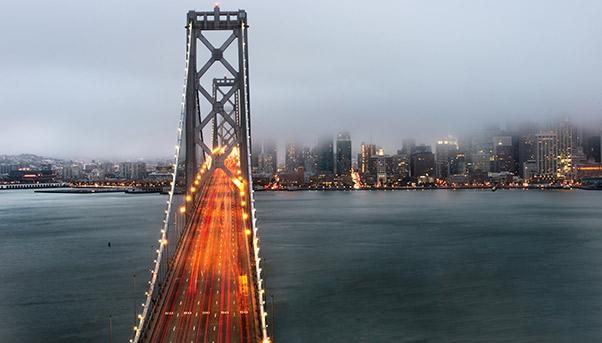
Robert Engle is a professor of finance at the New York University Stern School of Business, and the winner of the 2003 Nobel Prize in Economics for developing with a fellow expert methods to analyze volatility in financial markets.
Engle is also co-founder of the Society for Financial Econometrics, a global network of experts in the field. That is why he is the right person to explain what is happening with the markets and the global economy, as well as suggest what measures should be taken for the long term.
Professor Engle, what is ailing markets and the global economy?
“The selling is rooted in fears about the outlook for global economic growth, led by a slowdown in China and a collapse in the price of oil. The pain has spread from shares in energy and materials companies to sectors such as financials and technology. You can point to a lot of reasons but they are symptoms of a bigger problem: a global economic growth deficit and the perceived risk of a global recession.
The impact has been to raise the cost of borrowing, depress equities prices and produce bear markets for commodities and many emerging equities and currencies.”
It is necessary to manage these risks. Which measures do you suggest for investors?
“There are some sectors under fire, which have to be treated at least with care: the banks and in general the financial sector. Here, the problems are two-fold. Renewed concerns about the health of the banking system in Europe have cast a shadow over the U.S. counterpart. The European financial system still feels undercapitalised relative to the U.S. and undercapitalised relative to the threats it faces. All this shouldn’t affect the U.S. Instead, for right or wrong, it does.
The trouble is, in the last crisis, which was a financial crisis, no country can be defined firewalled, so there is a prejudicial attitude in the market. Moreover, investors have been waiting for years for bank stocks to reap the classic benefits of a rising interest rate environment. Nothing of all this: with the market turbulence, expectations for rate rises this year have gone from a few to none while a flattening of the yield curve in most markets squeezes banks interest margins.

Bay Bridge San Francisco
Outside the financial sector, be cautious with tech: a handful of tech stars — the so-called Fang’s (Facebook, Amazon, Netflix and Google) — were responsible for gains in 2015. They have been punished this year too, along with the broader tech sector.
In a further sign momentum trades of 2015 are dead, the biotechnology sector has lost more than 25 per cent. For the latest quarter, all these companies are losing the Wall Street game where analysts write down their estimates, and values subsequently surpass a lower bar.”
Where are the risk highest?
“A burning question early in 2016 is how long countries such as China, Saudi Arabia and others can continue to rely on currency reserves to spare their currencies from a pronounced drop in value.
As the global economy shows further signs of weakening and the collapse in commodity prices has punctured the budgets of many countries, investors are betting on much weaker currencies and the end of the Saudi peg to the dollar.”
All this means that we are close to another 2008?
“Actually, there are still several important differences. Take again the banks: despite all the problems, they are stronger than then.
Other differences are on the table. The price of oil, for instance, was then at the maximum, now it is so depressed that it has lost 70% of its value in one and a half year. A global supply glut has driven down prices, partially the result of the U.S. “fracking” boom. At a meeting in November 2014, Saudi Arabia’s oil minister Ali al-Naimi led the cartel in maintaining production levels despite oversupply. The bid to retain market share and force marginal producers out has resulted in record output of around 32 million barrels per day in January 2016, well in excess of the 30 million barrel per day target ceiling OPEC set in 2011 and up 131,000 barrels per day from the prior month. Iran’s re-entry into international oil markets has exacerbated the situation. Now it’s to see if the recent opening of Iran to come to terms with Saudi will bring any news.
Coming back to the general situation, as I said there are important differences with 2008, also because they open opportunities.”
Can you give us an example?
“Having repeated that financial and technological sectors are temporarily to avoid, there is, in the U.S. and in the world, a huge field of opportunities for investor to allocate their capital and for corporations to invest and open new markets.
I think of the fields of agroindustry, of green chemicals, of health and biomedical industry (without the speculative excesses of biotech), even of infrastructure which is severely insufficient even in the U.S.: bridges, hospitals, roads, airports.
It’s on these pillars that lie the foundation for growth in the standard of living in emerging countries and for a jump in quality in the industrial world.”

